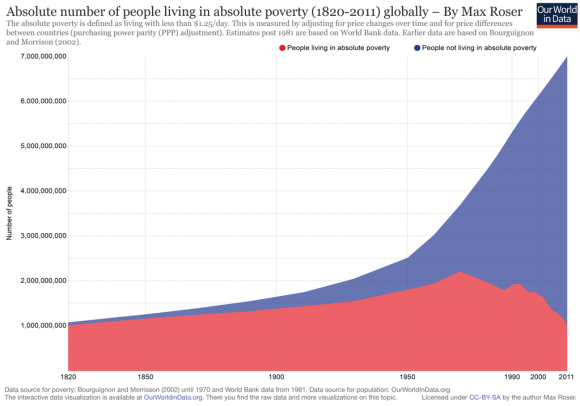One of my major criticisms of Thomas Piketty’s blockbuster book on wealth inequality was that it didn’t highlight the global effect of inequality well enough. For instance, it didn’t note that global poverty has declined substantially over the last 75 years. I wrote:
But more interestingly, in a global sense, one could argue that the rise of the developed world and its accompanying wealth explosion has been an instrumental driver in helping to bring the emerging world out of substantial poverty. Over 1 billion people have been brought out of extreme poverty in the last 20 years alone. So again, the book struck me as being fairly vague about the very concept of “inequality” because it does not provide a very insightful perspective into the meaning of “wealth” and how it really relates to our living standards.
Here’s the visual version of this via Max Roser:
This point can’t be highlighted enough. Capitalism has plenty of weaknesses, but the fact is that this system has also done a tremendous amount of good for the world. While it certainly doesn’t lift all boats evenly (and even results in extreme unevenness in certain countries) it has in fact lifted all boats over the last 75 years.
Mr. Roche is the Founder and Chief Investment Officer of Discipline Funds.Discipline Funds is a low fee financial advisory firm with a focus on helping people be more disciplined with their finances.
He is also the author of Pragmatic Capitalism: What Every Investor Needs to Understand About Money and Finance, Understanding the Modern Monetary System and Understanding Modern Portfolio Construction.

